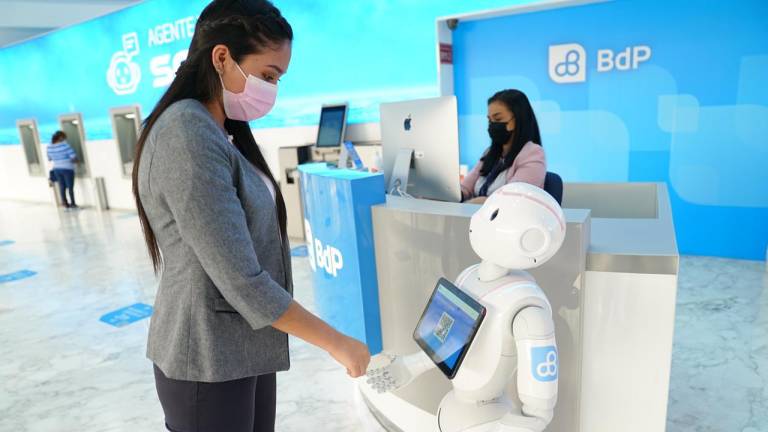How AI Can Automate These 6 Industries
Jul 27, 2021
Believe it or not, many items that we use daily are already using artificial intelligence (AI) to function. Whether it's a Tesla or a smart home assistant like Amazon Alexa, AI has such a wide range of applications that will inevitably make our lives easier.
In the past, AI was only considered a theme in various science fiction movies. With significant developments in technology, AI can now be used to optimize business processes and provide valuable insights to business owners. When AI is combined with robots and automation, the industrial possibilities seem endless.
With AI automation, employees in manufacturing, for example, can spend more time working on manual tasks while their robotic counterparts can handle more of the heavy lifting. In this case, AI-powered robots would improve overall safety in factories. This is only one example of an AI application that we can see is already making a difference.
Let's explore some of the other industries that could benefit from using AI in their practices.
6 Industries Headed Toward AI Automation
While some industry leaders are more hesitant to adopt new AI technologies, the benefits are far-reaching. Because AI mimics human intelligence, there's some fear that AI-powered robotics will take over the workforce and make it challenging to find jobs.
However, it's crucial to understand that AI is meant to complement the capabilities of current employees. Making this distinction can help alleviate some of the fears people have regarding AI and robotic automation.
Below are six industries that can use automation to enhance their current processes, allowing employees at all levels to focus on other crucial tasks.
1. Healthcare
The healthcare industry is arguably the most critical industry that can benefit from automation. When AI can be used in tandem with the latest scientific tech, patients receive high-quality care. Robotics used in operating rooms can be automated — they use ultimate precision to operate on patients while human doctors supervise and monitor their movements to ensure accuracy.
Another way the healthcare industry can benefit from automation is by creating virtual doctors to handle more minor patient needs. Automatic disease identification, identifying patients for clinical trials, and health monitoring are only some of the other benefits the healthcare industry can reap by using automation.
2. Agriculture
Because the agriculture industry plays a significant role in the country's infrastructure, automating this kind of manual labor can drastically increase farmers' productivity.
With dwindling resources, providing food for the growing population is crucial in today's agricultural landscape. There are many applications for automation in agriculture, such as predicting which harvests will yield the best outcomes, seeing how long crops take to grow, and so on.
3. Data
Big data is already changing the way data analysts handle incoming client information. It's crucial for business owners to make data-driven decisions, which is easier with automation. AI can help data professionals gather valuable insights and analytics. Automating repetitive, monotonous tasks will be a game-changer in IT departments.
4. Marketing
Digital marketing is growing at an exponential rate, and AI automation use cases are increasing. The goal of any marketer is to sell products and services to the right target market to boost sales and improve return on investment (ROI).
By using automated software and systems, marketers' jobs are made easier, and understanding customer behavior becomes more manageable. AI allows marketers to tailor their marketing strategies to the right people, and advertisements are becoming more personalized through automation.
5. Accounting
Although some believe that automation will be the death of the traditional certified public accountant (CPA), there’s no guarantee that the demand for CPAs will suddenly disappear. People will still need to file their taxes and receive expert guidance on their finances, something a human can personalize on a case-by-case basis.
Technology in accounting helps streamline business processes, reduce risks, manage governance and improve financial reporting. AI will help accountants draw conclusions and analyze insights that will benefit clients and help them gain a better understanding of their financial situations. Accountants will spend less time sorting through mountains of paperwork and more time delivering results to their clients faster.
6. Retail
The retail industry is experiencing a digital transformation, and AI automation will play an essential role in that transformation. Think of self-checkout as automation in its most basic form — customers are more satisfied knowing that they have the option to bypass lines and take care of their transactions. Retailers are better equipped to streamline their processes and provide top-of-the-line customer service with bots and automation.
As you can see, there are more than a handful of industries that can benefit from automation, and it's likely we'll see more of this in the future.
AI Automation in Action
As researchers and scientists continue to develop AI technologies, more industries will inevitably implement them into their operations. If businesses want to maintain a competitive edge, they'll have to be willing to adopt these technologies and automate tasks to improve their efficiency and meet their bottom line.
Discover more about Business and AI with RobotLAB!

About the Author
Shannon Flynn is a technology writer and managing editor at ReHack.com - https://rehack.com/











 Too much to read? Don't have time?
Too much to read? Don't have time? 

.webp?width=124&height=124&name=image%20(1).webp)
.webp?width=169&height=87&name=image%20(2).webp)













